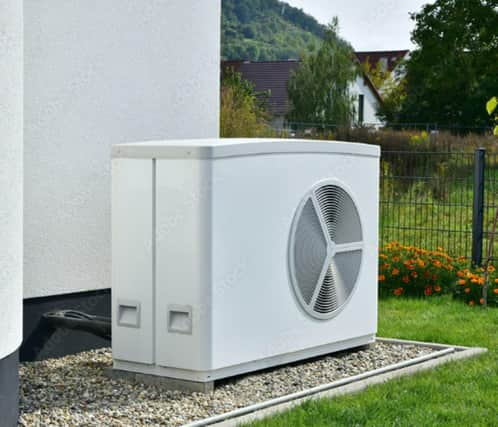Going Green: Heat your home in a way that’s good for the environment


They’re far more efficient than gas boilers though and they’re better for the environment too. There are significant government grants available to help pay for the upfront cost and there are Government targets in place to ensure enough people in the UK are switching to a heat source that’s better for the UK and the planet.
Put in simple terms, they work by extracting heat from the ground or air, warming it to a certain temperature and then circulating it around the home to keep it warm. They’re incredibly efficient and in a survey last year, 80 percent of households with them fitted said they were satisfied with their heat pumps as a heating system.
Advertisement
Hide AdAdvertisement
Hide AdIn order to help meet UK climate targets, the UK government want to install 600,000 heat pumps a year by 2028 but unfortunately at the moment they’re falling pretty far behind that target. In fact, only 55,000 were sold in 2022 so there’s a way to go to improve consumer confidence up.
One of the main concerns people talk to me about is do they work in cold climates. The answer is a definite yes with heat pumps widely installed throughout Scandinavian countries that have far colder winters than we do in the UK. They have a very energy efficient closed loop way of heating your home and recovering waste heat and run off electricity, which is increasingly powered by wind and solar rather than imported gas. Using a fabric first approach, proper insulation is essential - as it is with all types of heating – otherwise you’re just heating a space to have that warm air lost through leaky walls and windows.
There’s another myth that they’re noisy but they operate around 40 decibels which is the same noise level as a fridge for comparison.
There’s a belief that they require under floor heating, but they don’t but it’s not a necessity in order to get one fitted.
Advertisement
Hide AdAdvertisement
Hide AdThey are more expensive but with free money from the government grant they’re a lot more affordable than many people think. The boiler upgrade scheme (BUS) in England is worth up to £7,500 and if you’re in Scotland you can get financial support of up to £15,000 to buy and install a heat pump. There’s misinformation that they can only be installed in new builds too but that’s not the case at all.
Googling ‘get a heat pump’ will bring you a lot of suppliers who can talk you through what might work and what might be best – it’s vital installers are registered with the Microgeneration Certificate Scheme https://mcscertified.com/ and you get one that’s the right size for example as I know people who went too big when it comes to their heat pump.
The Energy Saving Trust have a great heat pumps page here: https://energysavingtrust.org.uk/energy-at-home/heating-your-home/heat-pumps/and NESTA the innovation agency for social good have a great page here too: https://www.nesta.org.uk/project-updates/heat-pumps-user-journey/
They even have an initiative where you can visit a heat pump in situ and homeowners who are happy with them have signed up. You can search your nearest home here to see one in action and talk to people who have them: https://www.visitaheatpump.com
Advertisement
Hide AdAdvertisement
Hide AdFinally, beware of anyone trying to sell you a gas boiler instead of a heat pump by repeating some of the myths mentioned above. Heat pumps, like wind farms and electric cars, are a superior product and they may be novel now but will soon be standard and that’s good news to help secure a safe future.